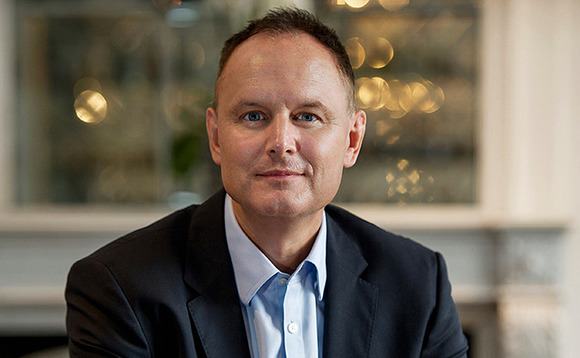
GP Profile: Scottish Equity Partners

- Tickets of up to £25m
- 150 investments and 120 exits
- Latest fund SEP V is 25-30% deployed
- Half of SEP V deals so far are co-investments
- Offices in London, Glasgow and Edinburgh
Scottish Equity Partners (SEP) raised £260m for its latest growth capital fund last year and was awarded exit of the year at the unquote" British Private Equity Awards for its £1.5bn sale of Skyscanner. Denise Ko Genovese talks to managing partner Calum Paterson about the firm's record and its approach to co-investment
With 17 years' experience in its current guise – spanning 150 investments and 120 exits – Scottish Equity Partners has firmly established itself in venture and private equity circles.
The firm was set up in July 2000, although the founding team had previously worked together investing in early-stage companies in Scotland. Key hires included Andrew Davison from 3i, David Sneddon, who had been a partner at Bridgepoint, and Jan Rutherford, who joined from Dresdner Kleinwort Capital. Yet, though its beginnings lie in early-stage investments, SEP is now fully settled as a growth-stage investor.
"The ecosystem for startups and early-stage companies in the UK has improved and is now stronger than ever," says SEP managing partner Calum Paterson. "Our steady progression through the years is a reflection of the way the market has evolved. That's positive for the startup venture capital scene, and although we are later-stage and growth equity investors, it also really matters to SEP because we need to have good investment opportunities coming through further down the line."
Funds
SEP is currently investing from its fifth fund – SEP V, which closed on £260m last November. The GP did not use a placement agent for the fund and existing LPs accounted for 90% of commitments, with 40% from the UK and the remaining 60% from continental Europe and the US. The GP told unquote" at the time that the majority of its investors were pension funds, asset management companies and family offices. According to publicly available records, investors include South Yorkshire Pension Fund, Glenlivet Capital and West Midlands Pension Fund.
The fund is currently 25-30% deployed, with the most recent investment in global scientific informatics company Dotmatics. Around half the deals done so far through SEP V were syndicated with LPs, says Paterson.

"We are open to the idea of co-investment and there has been an increasingly strong appetite from our LPs, reflecting our shift towards later-stage, growth equity deals and their confidence in what we can do," says Paterson. "It is a positive development as it enables us to consider a broader set of deals without necessarily having to look for another GP to invest alongside us. It means we can retain primary control of the deal process and structure, and the relationship with management. Through co-investment, we can also build closer links with key investors in our funds and help them deploy more capital into attractive opportunities."
The predecessor fund was SEP IV, which held a final close on £200m in January 2012. SEP IV was fully deployed as of mid-2016 with only a handful of companies remaining.
Investments
The firm specialises in enterprise software, consumer internet and tech-enabled service businesses. It typically invests equity tickets of up to £25m in return for a minority stake, though there is the possibility of doing larger deals in conjunction with others – including the deals with LPs in its own fund as a direct co-investment. Deal targets are usually based in the UK or continental Europe, with a focus on growth-stage opportunities led by an entrepreneurial management team.

There are currently 30 companies that make up SEP's portfolio. Household tech names that garnered great attention for the firm include travel comparison website Skyscanner – for which it was presented an award for venture and growth capital exit of the year in respect of its £1.5bn sale to NASDAQ-listed Ctrip at the unquote" British Private Equity Awards in October – and high-end fashion website Matchesfashion.
The latter is a deal that typifies what SEP is trying to achieve, backing founders Tom and Ruth Chapman's vision of transitioning from bricks and mortar retailing into a fully integrated global e-commerce business. SEP brought in Ulric Jerome as CEO and enabled significant investment in the tech platform. Its growth – to revenues of £200m – culminated in a deal with Apax Partners in September this year.
Key People
• Calum Paterson, managing partner
• Andrew Davison, partner and head of new investments team
• Jan Rutherford, partner and head of investor relations
• David Sneddon, partner and head of portfolio team
Latest News
Stonehage Fleming raises USD 130m for largest fund to date, eyes 2024 programme
Multi-family office has seen strong appetite, with investor base growing since 2016 to more than 90 family offices, Meiping Yap told Unquote
Permira to take Ergomed private for GBP 703m
Sponsor deploys Permira VIII to ride new wave of take-privates; Blackstone commits GBP 200m in financing for UK-based CRO
Partners Group to release IMs for Civica sale in mid-September
Sponsor acquired the public software group in July 2017 via the same-year vintage Partners Group Global Value 2017
Change of mind: Sponsors take to de-listing their own assets
EQT and Cinven seen as bellweather for funds to reassess options for listed assets trading underwater








